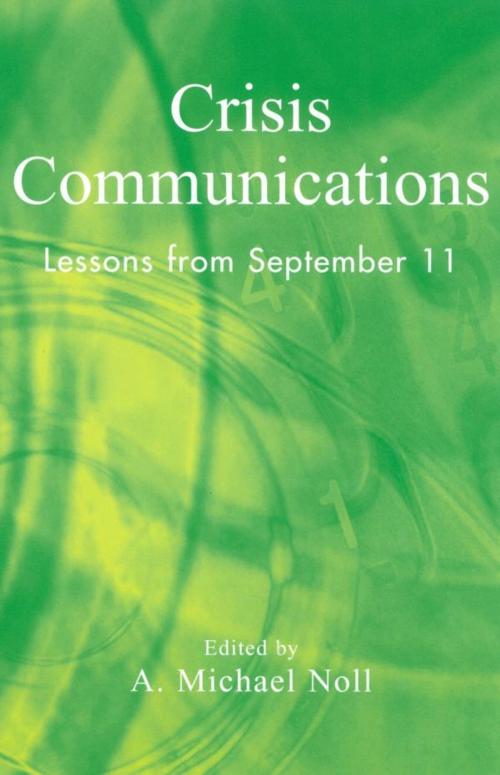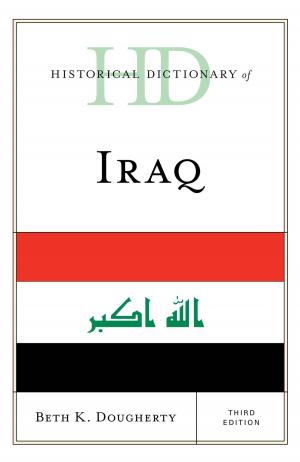Crisis Communications
Lessons from September 11
Nonfiction, Reference & Language, Language Arts, Communication| Author: | Peter Clarke | ISBN: | 9780742575639 |
| Publisher: | Rowman & Littlefield Publishers | Publication: | November 19, 2003 |
| Imprint: | Rowman & Littlefield Publishers | Language: | English |
| Author: | Peter Clarke |
| ISBN: | 9780742575639 |
| Publisher: | Rowman & Littlefield Publishers |
| Publication: | November 19, 2003 |
| Imprint: | Rowman & Littlefield Publishers |
| Language: | English |
On September 11, 2001, AT&T's traffic was 40 percent greater than its previous busiest day. Wireless calls were made from the besieged airplanes and buildings, with the human voice having a calming influence. E-mail was used to overcome distance and time zones. And storytelling played an important role both in conveying information and in coping with the disaster. Building on such events and lessons, Crisis Communications features an international cast of top contributors exploring emergency communications during crisis. Together, they evaluate the use, performance, and effects of traditional mass media (radio, TV, print), newer media (Internet, email), conventional telecommunications (telephones, cell phones), and interpersonal communication in emergency situations. Applying what has been learned from the behavior of the mass media in past crises, the authors clearly show the central role of communications on September 11. They establish how people learned of the tragedy and how they responded; examine the effects of media globalization on terrorism; and, in many cases, give specific advice for the future.
On September 11, 2001, AT&T's traffic was 40 percent greater than its previous busiest day. Wireless calls were made from the besieged airplanes and buildings, with the human voice having a calming influence. E-mail was used to overcome distance and time zones. And storytelling played an important role both in conveying information and in coping with the disaster. Building on such events and lessons, Crisis Communications features an international cast of top contributors exploring emergency communications during crisis. Together, they evaluate the use, performance, and effects of traditional mass media (radio, TV, print), newer media (Internet, email), conventional telecommunications (telephones, cell phones), and interpersonal communication in emergency situations. Applying what has been learned from the behavior of the mass media in past crises, the authors clearly show the central role of communications on September 11. They establish how people learned of the tragedy and how they responded; examine the effects of media globalization on terrorism; and, in many cases, give specific advice for the future.















